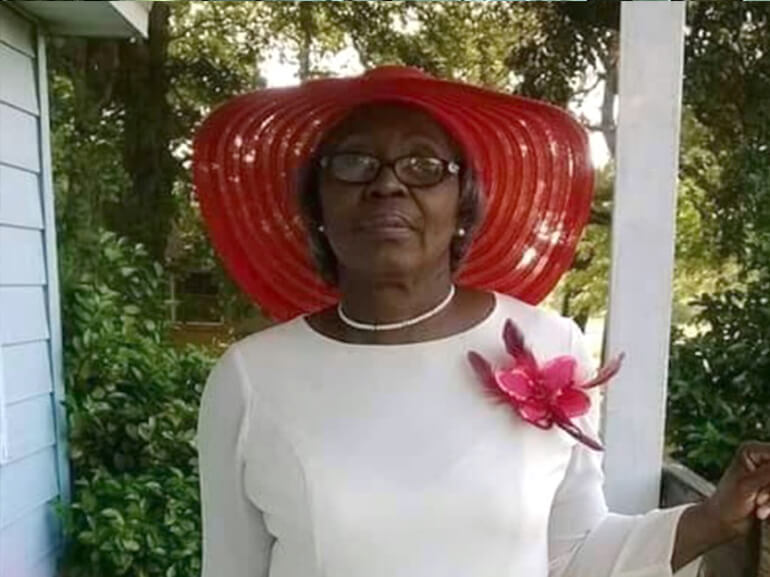Azalee's Story

Finding hope after heartbreak and COVID-19
Like many Americans, Azalee Blyther can’t be sure where she contracted COVID-19. The 72-year-old took precautions, including wearing a mask and frequent handwashing.
In early July, Azalee tested positive, spent several days in the hospital and returned home despite still feeling ill.
By July 27, she was back in the hospital with COVID-induced respiratory failure and connected to a ventilator. Surgeons also placed a tracheostomy for airway support and feeding tube.
Then, her 93-year-old mother contracted the virus. They were briefly hospitalized together before her mother passed away. Heartbreakingly, Azalee could not attend the funeral.
At the end of August, Azalee turned a corner. Her son, Octarius, and daughter, Angela, researched next level of care options and chose Regency Hospital of Florence.
Azalee arrived unable to walk, talk, breathe or think independently. A physician-led team of nurses, therapists, pharmacists and dietitians created an individualized treatment plan to get her home.
Respiratory therapists gradually stepped back ventilator support as her lungs took over. Increased oxygen cleared lingering mental fog.
After a week, Azalee met two crucial milestones. She liberated and the tracheostomy was fitted with a valve permitting more normal speech.
“When I could talk, I could tell staff what I needed,” she said.
Each day, Azalee’s fighting spirit grew.
“I’m not a person who likes to stay home,” she said. “I have to be busy. When the staff offered to feed me when I was weak, I told them no and figured out a way to do it myself. I didn’t want to give up.”
Physical therapists started to work with Azalee to sit in bed and move to its edge without help. Then, therapists aided her transition to a chair. She then worked on standing and taking several steps.
Airway support was discontinued, replaced by a small nasal oxygen tube. Speech therapy helped Azalee restore swallowing reflexes and dietitians crafted a transitional meal plan after the feeding tube was removed.
When Azalee arrived, visitation was restricted due to the pandemic, so staff organized regular phone and video chats with loved ones. When regulations eased, family members alternated daily visits.
Throughout the stay, her children, grandchildren, friends and coworkers from the local library sent cards, gifts and good wishes.
“Everybody was patient with me. This is the best hospital,” she said. “The staff went out of their way to help me improve.”
After three weeks, Azalee was discharged to inpatient rehabilitation to continue building strength and endurance so she can get home, sit on the back porch and cuddle her cat, Fuzzy.
Azalee said she’d tell fellow survivors: “Love one another, stand together with your family, and treat others as you want to be treated.”